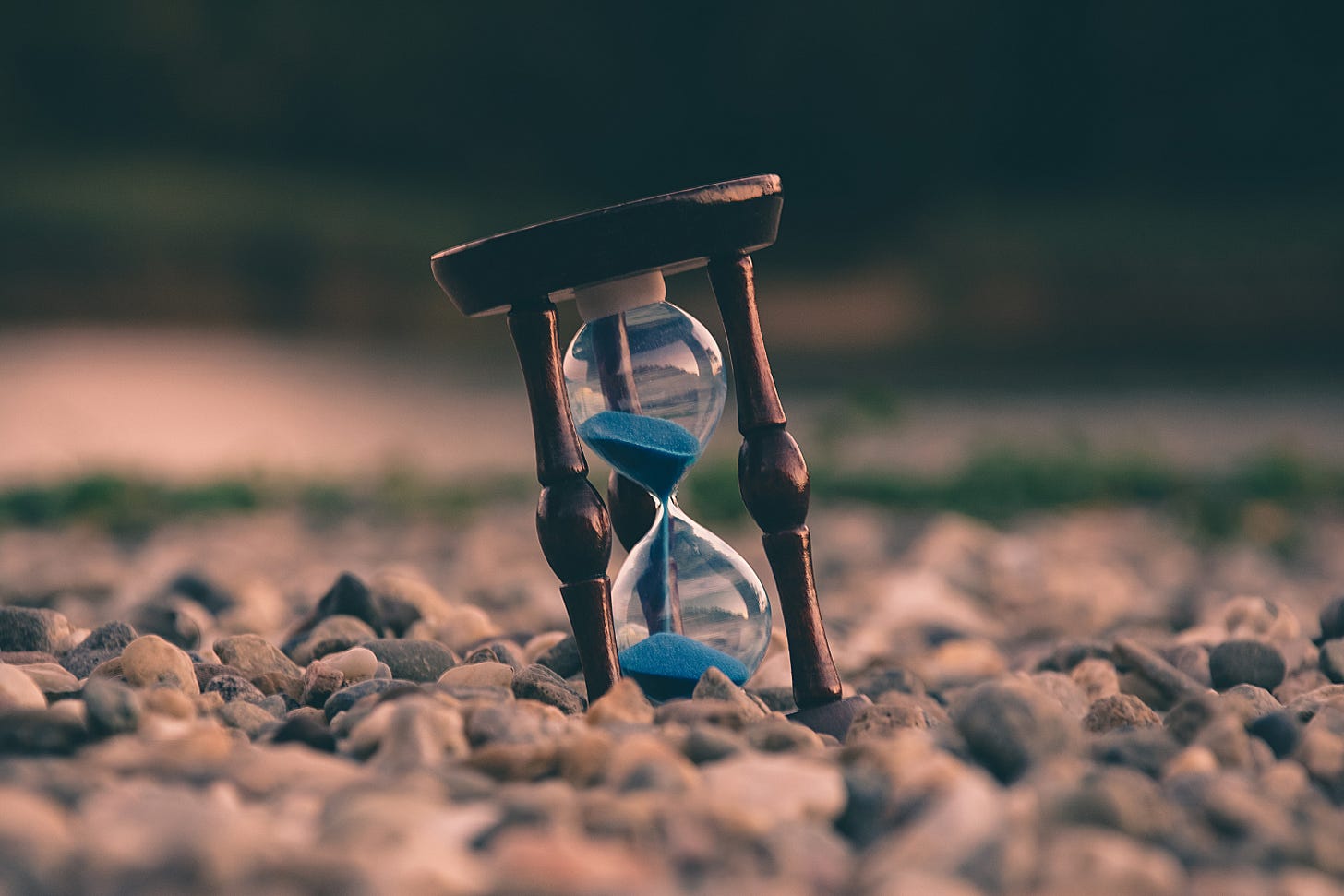The abundance and scarcity of life
Some hope for parents of young children
Lately, I’ve felt constricted in life. Fatherhood is really hard. Normally statements like that are qualified with something like “it’s amazing, of course”, and I would agree with that sentiment. But the reality is also that it’s freaking hard. Just last night Jenoa and I went to dinner at a friend’s home, and brought E along. All things considered, she did remarkably well — her unmitigated glee while playing with our friend’s golden retriever was something magical. And given the fact that we were in a space that small children don’t normally occupy, I would say she did very well — we had to wrangle, but it never felt cumbersome.
The most difficult thing about the evening was needing to leave for her bedtime. All said, we only got an hour with our friends. We needed to leave them to put our toddler to bed and spent the rest of the evening decompressing from the whole experience, and processing our disappointment.
I hate to write this, as it feels like I’m complaining. And maybe I am a little bit. I don’t begrudge our childless friends their freedom, but I certainly envy it. Parenthood entails encumbrance and restriction in ways that are difficult to understand until you experience them.
But I also wonder how much of the felt frustration comes from a limited view of life. A couple of months ago though, I was in an online writing class with the remarkable Cleo Kearns. To work alongside someone with her experience, insight, and wisdom was truly a blessing. Aside from her astute and erudite observations about theology, philosophy, and anthropology, she said something that really stuck with me.
She noted how a few of us in the group were parents of young children. She seemed especially heartened by how those of us who were fathers grappled with questions around living a vibrant life of the mind while also caring for our kids. It was a question, she noted, that feminist scholars struggled with for a long time. The fact that fathers are asking these same questions is, I think, a good development.
But the most significant thing she said in this regard were some words of encouragement. She said that life, when you have children, is shaped like an hourglass. Before children, life is wide open. But once you’re thrown into the life of a parent, things constrict. Your horizon of possibilities, for a time, narrows. But she also pointed out that hourglasses also open up again. And the reality is also that the constriction is for a minority of the time. We don’t age like we used to. Longer lifespans and health-spans are increasingly available. There is an abundance of opportunity waiting for us on the other side.
This observation was from a woman in her eighties.
It is good to remember our own mortality, not to take life for granted, especially insofar as that helps us live virtuously in the present. But for more melancholic types like myself, I think it’s important to realize that, paradoxically, we can also have a lot of life. So much of our mindsets are built around scarcity, but, for those of us who live in developed countries, we are statistically more likely to live long and full lives, especially if we take ownership of our health. In the grand scheme of things, the truly scarce time are these years when our kids are young and profoundly dependent. I struggle to believe this in the midst of things, but it is true. If I’m afraid of missing out, it should be of the days when my daughter wants me to pick her up, to sing silly songs to her, to blow rasberries on her belly. The constricted times are the scarcest times.
Life, wherever you’re at, is abundant.


